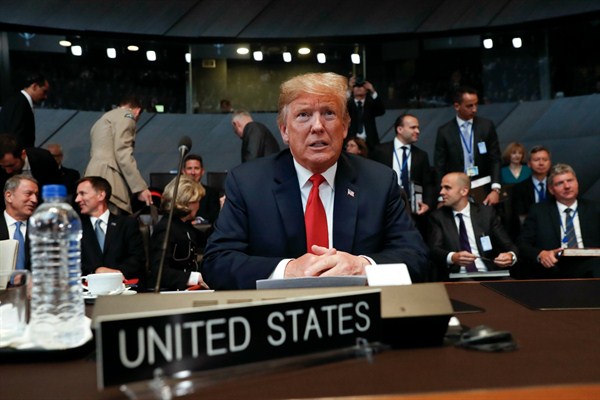Last week, I argued that America’s longstanding grand strategy, based on U.S. global leadership and a network of alliances and partnerships, is on its last legs as the world changes and the domestic consensus needed to sustain public support for it erodes. 2019 may be the year that the strategy, which goes back to the early days of the Cold War, finally unravels. What might that look like in the Middle East, the Pacific and Europe, the three most important regions for U.S. foreign policy?
America’s interests in the Middle East were initially driven by the need to keep hostile powers from controlling the region’s vast energy supplies and denying them to the United States and its allies. After 9/11, America’s pre-eminent objective was combating extremist movements and nations that support terrorism, primarily by strengthening partner countries’ security forces, from Egypt to Saudi Arabia. Now, both of these broad motivations are weakening. There is little chance of a hostile power using Middle Eastern oil as a weapon, unlike in the 1970s. And it’s become clear, after the invasion and occupation of Iraq and the so-called war on terror, that both changing the political, economic and social factors that give rise to extremism and fully eradicating extremist organizations are beyond America’s capabilities. In frustration, the United States under President Donald Trump is moving toward military withdrawals from Syria and Afghanistan and is likely to undertake a major, perhaps even total disengagement from the region.
In a sense, this shouldn’t be surprising. U.S. involvement in the Middle East came relatively late in the Cold War, not taking off until the 1980s. It was always the region where America’s partnerships were the narrowest and most shallow. In Europe and eventually the Pacific, the most important allies were fellow democracies with deep and robust economic ties to the United States. The Middle East was different. Democracy was fragile or absent altogether there, and the important role that religion played in defining national identities created tensions with the United States. Other than the survival of Israel, all that Washington really wanted was for oil to flow out of the region and terrorism not to. This meant that security partnerships were transactional and brittle, unlike the more resilient and adaptable ones in other parts of the world.

